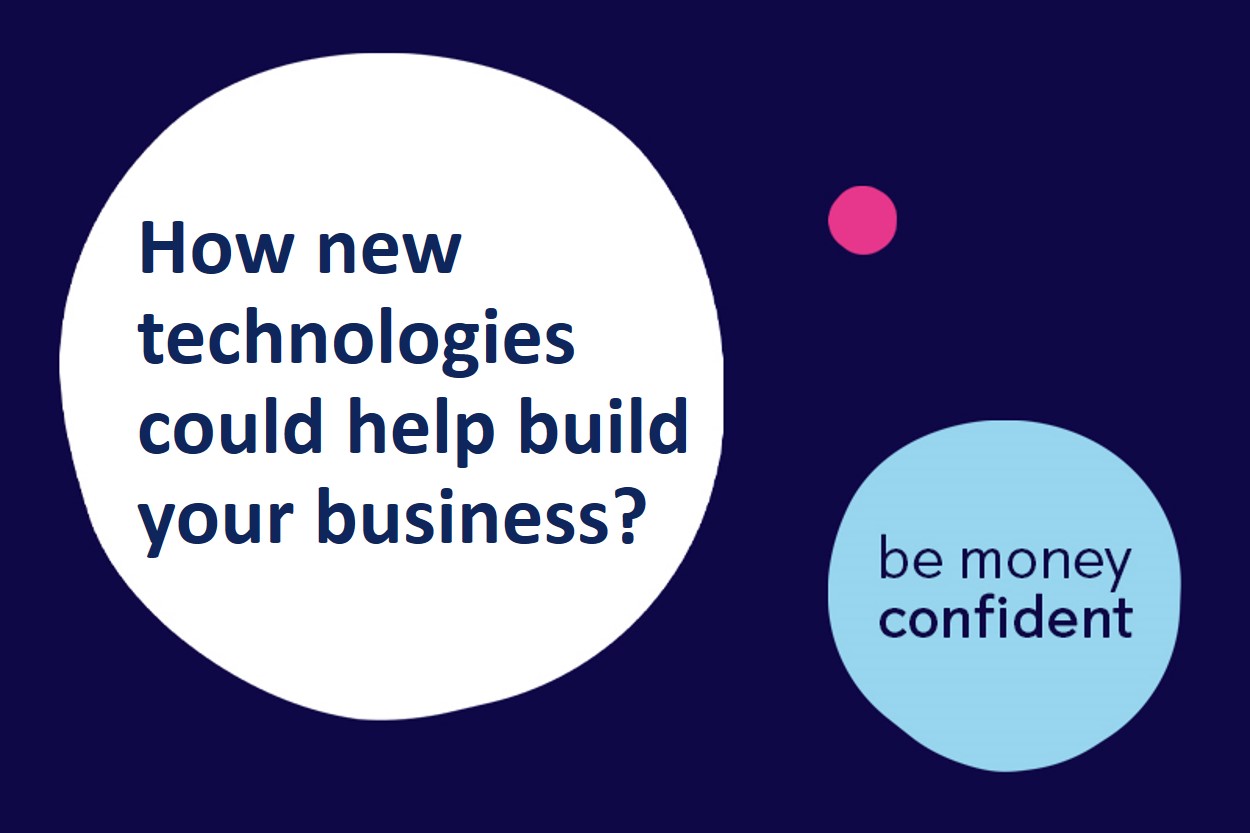Together we can end domestic abuse.
How new technologies could help build your business

How new technologies could help build your business
January 2022
A 2021 study by Hitachi Capital reveals that 76% of UK small businesses have used tech to boost their business in the last year. Improvements have been seen in cost cutting, increased output and streamlining customer service.
This article gives you a brief overview of why technology is so important. And how you can make sure you get the technology that’s right for you.
Technology in the small business environment
The digital revolution has seen the role technology plays in organisations increase at speeds never seen before. From enabling staff to work anywhere, anytime to automating any number of business processes, here are a few ways that tech has helped small business.
Improved collaboration: Instant messaging tech is a bit like email, but rather than having to wait for it to arrive it appears on screen immediately. This is a more efficient way to instantly connect, share ideas and gather feedback, whether talking to suppliers, clients or employees.
Efficient project management: A particular project may involve multiple people working over several months to complete. This means lots of conversations, with numerous people, in different locations, each working on a different part of the project.
Web-based project management systems let you keep track of everything. You can delegate tasks, update team members and clients, check you’re on schedule, and share documents. This helps to provide up-to-date information, wherever you are.Flexible work environments: Technology gives small business owners and their employees the option to work in the office, from home, or on the road. People even now view video conferencing as second nature. This gives business owners the opportunity to hire talent from all over the world as they are not limited to being in one central business premise.
Instant customer feedback: Gone are the days of mailing out surveys in the hope that someone responds. Small businesses can now just ‘click and connect’ with their customers via e-mail, blogs, social media and forums.
Online selling: Most of us have shopped from our sofas. Just a few clicks and that last minute birthday gift or tonight’s pizza is on its way. Technology provides small businesses with a means of selling their products or services, without the need to invest in expensive premises. And it means they can expand their market beyond their local areas, county or even country.
87% of the UK population made an online purchase in 2020
(Source: Statista)
Why is technology so important?
Tech is becoming increasingly effective, accessible and available and comes with many and varied benefits. Here are some of the most important when you’re running a business.
Ease of access to information
Better communication
Increased mobility – work anywhere, any time
Saves time and effort, thereby saving costs
Quicker and cheaper automation of key business processes
Expansion of selling opportunities
What technology do I need?
The type of technology that’s right for your business depends on: what you sell, the size of your business, your goals, your budget, or whether you have the skills to use it. However there is a common suite of technology that most small businesses will need:
Location-based tools – customers look for businesses and services near them. The right location-based tools can help make sure it’s your business they find first. Some examples are social media, domain extensions and trade listings.
Customer relationship management (CRM) software – customer relationships are the cornerstone of your business. CRM software helps manage those relationships, improve customer growth and retention, and convert enquiries into sales.
Business email – email is how most businesses communicate so a good email provider is essential. Domain names, security and storage space are all important things to consider.
Cloud Storage – a virtual storage system for all your data, a safe and secure hub where you can access and retrieve data at any time, from anywhere.
Business Internet – fast and secure internet connection enables you and your employees to work at optimum speed and efficiency.
Other key considerations:
Do you really need it? How will you benefit?
Can you afford it?
Can it flex as your business grows and needs change?
Can your employees use it? Is it costly to train them?
Does the tech supplier offer support and maintenance?
Let’s talk. We’re Britain’s bank for small businesses. Our Business Banking experts are here to help you with your business, with 25 months’ free day-to-day business banking, as well as 1 year’s free expert business advice from Enterprise Nation. Call 0345 835 3858 or contact us via your business bank account.
